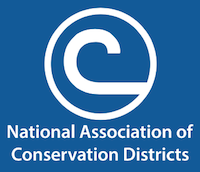Despite Secretary of Agriculture Sonny Perdue’s positive perspective, farm groups are reacting to Trump’s proposed 2018 budget in the opposite way. With more than $4 billion to be taken from the U.S. Department of Agriculture’s budget, the Trump’s plan isn’t going over well with a whole host of ag organizations.
 Several organizations point out the significance of such a cut in today’s economic climate. “Weakening crop insurance and making it more difficult for farmers to bounce back during tough times will jeopardize rural jobs and will find little support in rural America or on Capitol Hill,” say the Crop Insurers. “The rural economy is already suffering through a period of low prices and a multitude of spring weather disasters. Yet, the Administration’s budget proposal targets the primary tool farmers use to handle these risks.”
Several organizations point out the significance of such a cut in today’s economic climate. “Weakening crop insurance and making it more difficult for farmers to bounce back during tough times will jeopardize rural jobs and will find little support in rural America or on Capitol Hill,” say the Crop Insurers. “The rural economy is already suffering through a period of low prices and a multitude of spring weather disasters. Yet, the Administration’s budget proposal targets the primary tool farmers use to handle these risks.”
 Agriculture has done its part to reduce the national debt repeatedly, reminds American Farm Bureau President Zippy Duvall. “The American Farm Bureau Federation and its members are concerned about the federal budget deficit. However, we also know that agriculture has done its fair share to help reduce the deficit. Going back to the early 1980s, agriculture often has been targeted to generate budget savings, from the reconciliation bills in the late 1980s and 1990s to farm bill reforms as recently as 2014.”
Agriculture has done its part to reduce the national debt repeatedly, reminds American Farm Bureau President Zippy Duvall. “The American Farm Bureau Federation and its members are concerned about the federal budget deficit. However, we also know that agriculture has done its fair share to help reduce the deficit. Going back to the early 1980s, agriculture often has been targeted to generate budget savings, from the reconciliation bills in the late 1980s and 1990s to farm bill reforms as recently as 2014.”
 “Targeting the federal crop insurance program is extremely shortsighted,” the National Corn Growers Association said in a statement. “It is especially harmful during an extended period of low commodity prices. NCGA members consistently tell us that crop insurance is their most important risk management tool. This public-private partnership helps farmers manage their risk, and it saves taxpayers money in the long run by reducing reliance on ad hoc disaster assistance.”
“Targeting the federal crop insurance program is extremely shortsighted,” the National Corn Growers Association said in a statement. “It is especially harmful during an extended period of low commodity prices. NCGA members consistently tell us that crop insurance is their most important risk management tool. This public-private partnership helps farmers manage their risk, and it saves taxpayers money in the long run by reducing reliance on ad hoc disaster assistance.”
 “Thirty six percent is the most extreme proposed cut to crop insurance I’ve seen in my 40 years on the farm,” said Ron Moore, American Soybean Association President. “This is a program that exists to sustain farmers who suffer catastrophic losses. Coupled with the arbitrary caps the budget would impose on premium subsidies, it’s clear that this budget was written without input from farmers who would be severely affected.”
“Thirty six percent is the most extreme proposed cut to crop insurance I’ve seen in my 40 years on the farm,” said Ron Moore, American Soybean Association President. “This is a program that exists to sustain farmers who suffer catastrophic losses. Coupled with the arbitrary caps the budget would impose on premium subsidies, it’s clear that this budget was written without input from farmers who would be severely affected.”
 Cuts to conservation is also a sticking point for the groups. “We are very concerned that the president’s budget calls for privatizing conservation planning,” National Association of Conservation Districts President Brent Van Dyke said. “The need for conservation assistance is so immense across the country, it will take every dollar from both the public and the private sectors to get the job done.”
Cuts to conservation is also a sticking point for the groups. “We are very concerned that the president’s budget calls for privatizing conservation planning,” National Association of Conservation Districts President Brent Van Dyke said. “The need for conservation assistance is so immense across the country, it will take every dollar from both the public and the private sectors to get the job done.”
